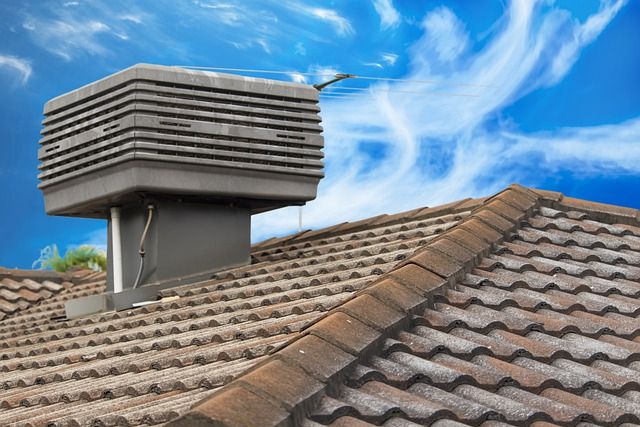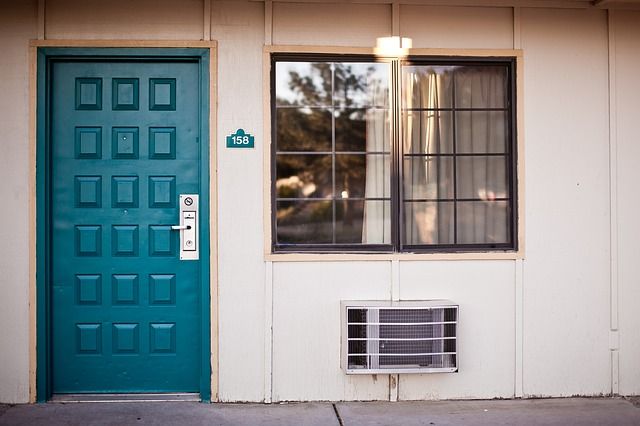How do HVAC systems and air purifiers work together?
HVAC systems - heating, ventilation, and air conditioning systems - help to keep the temperature inside apartments or other living spaces at a level that is good for human health.
It is not difficult to guess what an air purifier is for. It is a device for removing dust, germs, pet hair, tobacco smoke, and allergens, bacteria, and unpleasant odors from the air. Such particles and compounds not only interfere with normal breathing, but can cause allergies, dermatitis, and other unpleasant consequences. Therefore, an air purifier is essential for anyone who cares about their health.
Do HVAC systems purify the air?

HVAC systems are divided on the principle of location into central and local. Central ones are usually located away from the facility, and the chilled/heated air or water is delivered through ductwork and piping systems. Local systems can be located in the immediate vicinity as well as inside buildings or individual rooms. Radiators in houses, apartments, offices, air conditioners installed in the same houses or in the workplace are the simplest examples of components of HVAC systems. This list can be supplemented by various fan coils, ventilation systems, humidifiers and dehumidifiers, ionizers, and even underfloor heating (both electric and water). Organizing an HVAC system does not have to include all of the above. The main task for these devices in various combinations and arrangements is to maintain air parameters within the required limits.
HVAC systems themselves are not designed to purify the air, you will need an air purifier for that. The task of air purification in purifiers of various complexity is solved in approximately the same way: the air from the room is drawn in by the fan blades and directed to the chamber with filters. Passing through the filters, the airflow is cleaned and neutralized to varying degrees from various impurities: dust, lint from covers, pet hair, tobacco smoke, cooking odors, germs, or bacteria.
Clean air is the key to health and excellent performance. With an air purifier, the threat of spreading viral diseases is eliminated, the best concentration of negative ions for health is maintained, immunity is sustained, and well-being is improved. Filter kits eliminate all types of air impurities, disinfect and ozonize them.
Additional air scenting will help create a pleasant mood, and additional air humidification will solve many of the problems that arise from over-dried air.
Air purifiers are indispensable helpers and guardian angels of health for children and adults not only at home but also in medical institutions, kindergartens, or schools.
Installing a modern air purifier for your home or office is a real opportunity to improve the quality of life for your loved ones at home or your employees at work. Air purifiers simply and effectively change the situation for the better. They are indispensable for clean air at the enterprise, in the hospital or polyclinic, in the bank or in the state institution and other premises where it is required to create the most comfortable conditions for work and life of people.
Do you need an air purifier if you have HVAC?

The Environmental Protection Agency reports that indoor air pollution is one of the top five risks to health. Indoor concentrations of some pollutants have a chance of being two to five times higher than normal outdoor concentrations, and the average American spends 90 percent of his time indoors. The more bad news? The number of indoor pollutants has increased in recent decades, due to the fact that our energy-efficient buildings interfere with the outside air. This is very good for your electric bill but not so great when you wish to breathe brisk air. The introduction of indoor pesticides, household cleaners, and your own hygiene products, none of which you have to inhale periodically, has yet increased.
The air cleaning system has the ability to capture bacteria and germs, as well as allergens, such as family pet dander, dust mites, and volatile organic compounds (VOCs) such as benzene, ethylene glycol, and methanol. It has the ability to also neutralize smoke from a fireplace or tobacco products.
Who needs an air purifier?
An air purifier is a good idea for any home, but if you or someone in your family has any of these criteria, an air purifier is all the more important:
-
Breathing difficulties;
-
Allergies to dust, family pet dander, pollen, etc;
-
Asthma;
-
Smoking addiction.
Types of air purifiers for your air conditioning system
Installed in the ducts of your heating system or freezing your dwelling, air purifiers will be more effective at capturing and eliminating indoor air pollutants than the uncomplicated pleated weightless filter you may have at the moment. Modern purifiers use high-efficiency mechanical filters, ultraviolet light, or electrostatic power to clean the air of pollutants and pathogens. Below are some of the different types of HVAC air filtration and cleaning systems. You will try to consult with a professional air conditioning expert to help you choose the right one for your home:
-
HEPA: These devices use HEPA, which has a chance of capturing more than 99% of particles in the air. However not every system is compatible with a HEPA filter, as a consequence, you may well need to look at other types.
-
UV: Ultraviolet development is often used in conjunction with a HEPA air purifier. By using rays of ultraviolet light, this air purifier has the ability to kill tiny tiny organisms, such as bacteria and other pathogenic tiny organisms.
-
Activated Carbon Filters: If your primary goal is to remove VOCs, smoke, and other odors, this filtered filter has absorbent pores to trap pollutants.
-
Electrostatic Air Purifiers: This air purifier image cleans the air with the support of static electricity. An electrostatic charge is generated by the air passing through a network of suction static fibers and this static charge inhibits airborne particles in the filter.
-
Ionizing Air Purifiers: An ionizing air purifier produces charged particles that trap pollutants in the air. Groups of the smallest particles stick together and are made very light to stay in the air, or they are captured by the filtration system.
For anything like air purifiers, systematic maintenance is considered the key to their performance. Single filters should be replaced when full of debris, and those that can be reused should be hosed down at least once every 6 months.